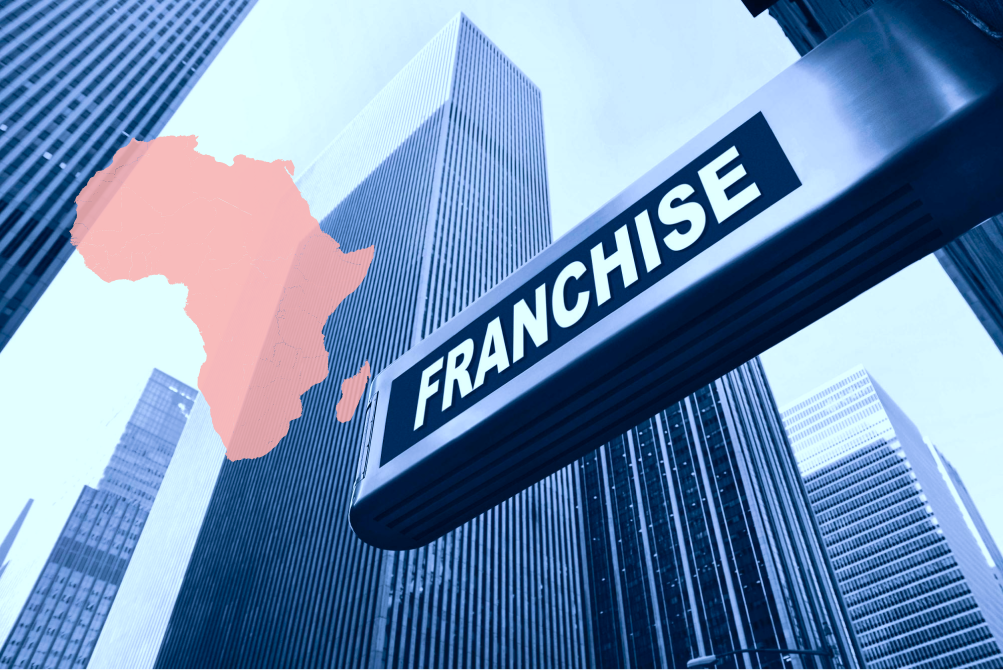comms@pedestalafrica.com +234 809 761 1111 Africa Investment Notes | Q3, 2025 Read now
Introduction
Franchising is a popular business model that has seen remarkable success around the world, allowing entrepreneurs to replicate proven business concepts and expand their reach. However, while franchising has experienced explosive growth in many regions, it has been comparatively slow to take root in Africa. In this blog post, we’ll explore some of the key reasons behind the sluggish growth of franchising in the African continent.
- Economic Challenges
One of the primary obstacles to franchising in Africa is the economic challenges that many countries in the region face. High levels of poverty, income inequality, and unemployment make it difficult for potential franchisees to secure the necessary funds to start a franchise. Many aspiring entrepreneurs simply lack the financial resources to invest in a franchise, and traditional lending institutions may be hesitant to provide loans in regions with unstable economies and high-risk profiles. - Lack of Access to Capital
Access to capital remains a significant hurdle for many entrepreneurs in Africa. The majority of people do not have the savings or collateral to obtain loans for starting a franchise. Furthermore, the absence of a well-established credit system and the high interest rates offered by some financial institutions can deter potential franchisees. To promote franchising in Africa, there needs to be more accessible and affordable financing options for small business owners. - Infrastructure and Logistics Challenges
The state of infrastructure and logistics in Africa can also hinder the growth of franchising. Poor roads, unreliable electricity, and limited access to essential services can pose operational challenges for both franchisees and franchisors. This can result in increased costs, lower efficiency, and slower growth. To encourage franchising in Africa, governments and organizations should invest in infrastructure development to create a more conducive business environment. - Cultural and Legal Differences
Cultural diversity and variations in legal frameworks across African nations can make franchising a complex process. What works for a successful franchise in one part of the world might not translate well to another, requiring significant adjustments and cultural sensitivity. Moreover, differences in legal systems can lead to disputes and difficulties in enforcing franchise agreements. Standardizing legal processes and fostering cultural understanding can help address these challenges. - Lack of Franchise Expertise
Many African entrepreneurs may lack the knowledge and experience required to successfully operate a franchise. Franchise systems often demand strict adherence to established business models and best practices. To overcome this challenge, more training and educational programs on franchising need to be made available. These programs can help potential franchisees develop the necessary skills and expertise to thrive in a franchised business environment. - Political Instability and Corruption
Political instability and corruption can deter foreign and local investors from engaging in franchising in Africa. Unpredictable regulatory changes and a lack of transparency can make franchisors wary of expanding into the region, as the risks often outweigh the potential rewards. Addressing these issues requires stable governance and efforts to combat corruption to create a more favorable business climate.
Conclusion
While franchising has experienced substantial growth in various parts of the world, it has faced notable challenges in Africa. Economic difficulties, access to capital, infrastructure issues, cultural and legal differences, lack of franchise expertise, and political instability all contribute to the slow growth of franchising on the continent.
To address these challenges and foster franchising’s growth in Africa, it’s crucial for governments, international organizations, and local entrepreneurs to work together. This collaboration can help create a more conducive environment for franchising, encouraging investment, job creation, and economic development in the region. With the right support, franchising in Africa has the potential to become a powerful engine for economic growth and entrepreneurship.
AFRICA FRANCHISE CENTER
Africa Franchise Center (AFC), one of our subsidiaries, is a pan-African organization that drives prosperity by leveraging the global franchising model. They offer continent-wide franchise services, empowering various stakeholders to maximize franchising’s potential across sectors in Africa.
As we gear up for the 2023 edition of our franchise report – Africa Franchise Index, we are excited to announce our annual survey, and we invite you to be a part of this significant initiative.

